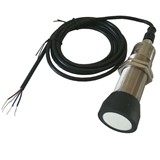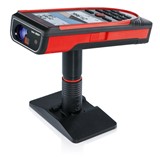Why are the Olympics so special? Because they celebrate sporting excellence in a competition that is truly global and there is something about winning an Olympic gold medal and being deemed an Olympic champion. There is a mystique tied up in the Olympics that you do not get in other competitions.
Why is this so? It is a combination of things. After all, Olympics spirit celebrates also about sportsmanship and fair play, but the games are also about fierce competition and the search for excellence. Looking beyond sport, they are also about friendship and fellowship and building strong relationships between nations.
But what has the Olympics got to do with business? Well everything. As highlighted in my new book Going the Distance, which will be launched by Prime Minister Kevin Rudd at the Beijing Olympics, there are many links between the world of trade and the world of sport.
In sport, and the Olympics are the best example of this, it is all about international competitiveness. Australian exporters are just like our Olympic athletes: everyday they are competing against the world’s best where only the most dedicated and fittest survive.
It is the same thing in economics. In Australia, we know that making Australia dynamic and competitive, as well as fair, is vital to our future economic prosperity and security, just as the Australian Olympic Committee knows it has to build the best team possible to compete effectively here in Beijing.
Indeed, as Going the Distance points out, Australia is a sporting nation that takes competition very seriously and considers the medal tally as an important indicator of national pride. Australia does very well at many sports from our legendary prowess in cricket, rugby league and netball and we have also done well at the Olympic Games for a small, young nation competing against more powerful nations with large populations and longer traditions.
But how do we do it?
In part due to our comparative advantages. Our climate and large coastal population means we are naturals at swimming and outdoor summer-based sports such as surfing, sailing, cricket and tennis.
But where we do not have a natural or comparative advantage we work hard through training, technology, and adaptability to build competitive advantage. We invest in human capital and we innovate – the Australian Institute of Sport is a testament to this success - overcoming geographic isolation and harsh conditions through ingenuity and creativity. That is why the Australian Government is committed to creating an education revolution right across the economy just as we have done in sport.
And how can we do it as a small nation in a competitive world?
As exporters we have many natural advantages, particularly in commodities. We are rich in fertile land and other natural resources and we make good use of these endowments.
However, distance and a small population can put us at a comparative disadvantage for many products and services. We also face the challenges of climate change. So we are driven to be innovative and use the most modern technology and management practices to succeed.
In the future it is likely to be the knowledge-based industries, like biotechnology and financial services, clean energy and the creative industries that will contribute to our export performance. Many of those industries are represented by businesses that are here today. Businesses like PTW architects who built the water cube, or Biograde who designed the recycling technology here in Beijing, or Dynalite who provided the lighting infrastructure for the Olympic Games.
In light of these new opportunities and new enterprises, the Australian Government has programmes in place to develop and strengthen our expertise in these emerging areas, as well as a demonstrated commitment to supporting Australian business in global markets.
Business Club Australia (BCA) is one such programme and that is why we are here today. BCA, which was initiated at the Sydney Olympics in 2000, and uses the high-level networking between business and government that takes place at major events like the Olympics, to leverage trade and investment opportunities for Australia.
BCA has been, to date, very successful. Since 2000, the programme has generated over $1.7 billion in trade and investment deals. At Beijing, many important figures from corporate Australia will be representing Australia. In addition, BCA has a large membership amongst the ranks of small and medium sized enterprises (SMEs) who may well be the major players of the corporate Australia of the future. This is important as SMEs represent 90 per cent of the 44,000 strong Australian exporter community and many got their start through contacts they made at the Sydney Olympics at BCA. Many more will do so at BCA Beijing over the next few weeks. This is important as networks and knowledge transfer are essential for small Australian companies who are otherwise locked out the global economy’s international business networks.
And of course, after the success of BCA in Sydney, Australia has ‘exported’ the BCA concept to China for 2008. The timing of this ‘export’ has been excellent as we all know how China is so important to Australia’s future economic prosperity.
After all, at the Sydney Olympics, Australia exports to China were worth just $6.8 billion, but now as we approach the eve of the Beijing Olympics they are worth nearly $28 billion. China is now our number one trading partner and an increasing source of and destination for foreign investment. The SME exporters are pulling their weight too and there are now, according to Austrade research, over 4250 Australian companies exporting to China and 3,000 companies based here. Even with the Beijing Olympics just about to begin, there are over 40 Australian companies who have won over 50 Olympic related-contracts, through the BCA programme. And that is just the start. In fact, the best years of the Australian-China business relationship are ahead of us and we will see many Australian and Chinese business figures start their own relationships at BCA functions over the next two weeks.
So as shown by Business Club Australia and the book Going the Distance, remember business and international trade has everything to do with sport.
Just as the Australian Institute of Sport helps train our Olympians using the latest research and technology, the Australian Government through the resources of the Austrade provides exporters and investors with the support in an increasingly sophisticated world market.
Just as our Olympians will be putting in heroic efforts over the nest two weeks so will Australia’s exporters and investors at BCA to leverage commercial opportunity for Australia in China and across the globe.
Whilst Australia’s exports have been growing strongly in the resource sector thanks to the commodity boom, it is also important that we also raise our performance in advanced manufactures, knowledge-based industries and in professional services.
As in the Olympics, we expect to do well in the pool but are want to add to our medal tally in other events. In the economy too, we know that we have strength in commodities but we also want to be a world-class player in advanced manufacturing, professional services and knowledge based industries.
Business Club Australia will do a lot to help Australia lift our performance across the board and that Australian business just like our Australian athletes, really will, like the book says, “Go the distance”.
- Suppliers
- New to IndustrySearch? Book a Demo
- Advertise with us
- Login
- Email Marketing
- Buyers
- Get Quotes
- Articles & Ideas
- Login
- Subscribe to newsletter
- My Details
- Get Quotes
- Automation & Control
- Automotive Workshop Equipment
- Commercial Cleaning Equipment & Supplies
- Construction Equipment & Heavy Machinery
- Conveyor Systems & Components
- Electrical & Power Generation Equipment
- Electronic Components
- Farming & Agriculture
- Food & Beverage Processing
- Forklifts & Forklift Attachments
- Hydraulic & Pneumatic Equipment
- Industrial Materials, Tools & Components
- Industrial Pumps
- IT Hardware & Industrial Computing
- IT Software & Applications
- Laboratory Equipment & Instruments
- Manufacturing & Industrial Equipment
- Material Handling & Lifting Equipment
- Metalworking & Machining
- Mining Equipment & Machinery
- Packaging & Labelling Machinery
- Pallet Handling Equipment
- Personal Protective Equipment
- Security & Surveillance
- Test & Measurement
- Transport & Logistic Equipment
- Warehouse Storage, Shelving & Racking
- Waste Treatment & Environmental Management
- Welding Machines & Accessories
- Woodworking & Joinery Machines
- Workplace Equipment
- Workplace Safety Equipment
- Get Quotes
- Automation & Control
- Automotive Workshop Equipment
- Commercial Cleaning Equipment & Supplies
- Construction Equipment & Heavy Machinery
- Conveyor Systems & Components
- Electrical & Power Generation Equipment
- Electronic Components
- Farming & Agriculture
- Food & Beverage Processing
- Forklifts & Forklift Attachments
- Hydraulic & Pneumatic Equipment
- Industrial Materials, Tools & Components
- Industrial Pumps
- IT Hardware & Industrial Computing
- IT Software & Applications
- Laboratory Equipment & Instruments
- Manufacturing & Industrial Equipment
- Material Handling & Lifting Equipment
- Metalworking & Machining
- Mining Equipment & Machinery
- Packaging & Labelling Machinery
- Pallet Handling Equipment
- Personal Protective Equipment
- Security & Surveillance
- Test & Measurement
- Transport & Logistic Equipment
- Warehouse Storage, Shelving & Racking
- Waste Treatment & Environmental Management
- Welding Machines & Accessories
- Woodworking & Joinery Machines
- Workplace Equipment
- Workplace Safety Equipment
Trusted by 1,000,000+ Australian industrial buyers
Buyers
- Discover products & solutions
- Login
- Subscribe To Newsletter
- Browse All Products
- Read Articles
Suppliers
Advertise
- Promote your products & solutions
- New to IndustrySearch? Book a Demo
- Login / Forgot Password
- Advertise Your Products
- Success Stories
- Email Marketing
- Suppliers
- Advertise with us
- Login
- Email Marketing
- Buyers
- Get Quotes
- Articles & Ideas
- Login
- Subscribe to newsletter
- My Details
Get Quotes
- Automation & Control
- Automotive Workshop Equipment
- Commercial Cleaning Equipment & Supplies
- Construction Equipment & Heavy Machinery
- Conveyor Systems & Components
- Electrical & Power Generation Equipment
- Electronic Components
- Farming & Agriculture
- Food & Beverage Processing
- Forklifts & Forklift Attachments
- Hydraulic & Pneumatic Equipment
- Industrial Materials, Tools & Components
- Industrial Pumps
- IT Hardware & Industrial Computing
- IT Software & Applications
- Laboratory Equipment & Instruments
- Manufacturing & Industrial Equipment
- Material Handling & Lifting Equipment
- Metalworking & Machining
- Mining Equipment & Machinery
- Packaging & Labelling Machinery
- Pallet Handling Equipment
- Personal Protective Equipment
- Security & Surveillance
- Test & Measurement
- Transport & Logistic Equipment
- Warehouse Storage, Shelving & Racking
- Waste Treatment & Environmental Management
- Welding Machines & Accessories
- Woodworking & Joinery Machines
- Workplace Equipment
- Workplace Safety Equipment
Get Quotes
- Automation & Control
- Automotive Workshop Equipment
- Commercial Cleaning Equipment & Supplies
- Construction Equipment & Heavy Machinery
- Conveyor Systems & Components
- Electrical & Power Generation Equipment
- Electronic Components
- Farming & Agriculture
- Food & Beverage Processing
- Forklifts & Forklift Attachments
- Hydraulic & Pneumatic Equipment
- Industrial Materials, Tools & Components
- Industrial Pumps
- IT Hardware & Industrial Computing
- IT Software & Applications
- Laboratory Equipment & Instruments
- Manufacturing & Industrial Equipment
- Material Handling & Lifting Equipment
- Metalworking & Machining
- Mining Equipment & Machinery
- Packaging & Labelling Machinery
- Pallet Handling Equipment
- Personal Protective Equipment
- Security & Surveillance
- Test & Measurement
- Transport & Logistic Equipment
- Warehouse Storage, Shelving & Racking
- Waste Treatment & Environmental Management
- Welding Machines & Accessories
- Woodworking & Joinery Machines
- Workplace Equipment
- Workplace Safety Equipment
Trusted by 1,000,000+ Australian industrial buyers



